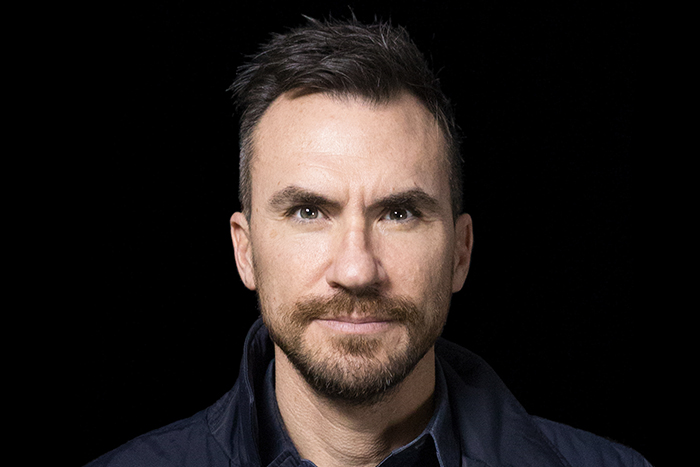
Greg Andersen, the CEO of independent advertising agency Bailey Lauerman, has spent 26 years working at top agencies in New York and Los Angeles on an impressive roster of brands, including Google, Toyota, Mattel, and Axe. Andersen, an Omaha native, moved from Los Angeles last year to helm the 47-year-old Omaha agency, best known for its work on national brands such as Cuties, Phillips 66 Lubricants, and Panda Express, in addition to regionally renowned work for Omaha’s Henry Doorly Zoo and Nebraska Tourism.
Earlier this month, Bailey Lauerman hosted a series of marketing innovation events during Omaha Startup Week as part of its partnership with the Startup Collaborative. Bailey Lauerman provides marketing expertise for the non-profit and its entrepreneurs, including programming for an inbound marketing unit in the Collaborative’s Fellowship program. In return, the agency has exposure and access to unique technology and talent coming out of the area’s startup community, which it can leverage on behalf of its clients.
SPN sat down with Andersen to talk about how local entrepreneurs can be more succinct in their storytelling and capture the attention of investors and customers.
Q: What’s the biggest mistake entrepreneurs make in pitching their startup?
A: Not telling a compelling story. Most entrepreneurs spend too much time talking about the what and not enough about the why. In advertising, we spend a lot of time learning about the people our clients want to reach. In many cases, this includes millions of individuals with infinitely different needs, hopes, and economic situations. When our work goes live, we’re essentially cold-pitching all of them at once. Understanding the complexity of human diversity takes hard-nosed investigation, thoughtfulness, and creativity. It’s never enough just to put a product out there; we have to help people envision their lives improving in some way through our work.
Validating market demand is equally important. Each VC will have his or her own assumptions. Having an arsenal of data, ideas, and anecdotes in your back pocket is the only way to ensure you’re equipped to respond to whatever the VC throws back at you. With that, even if you initially misread a VC, you should be able to give a thoughtful response that, if nothing else, shows you’ve thought through things.
Q: What are the 2–3 keys to a great elevator pitch?
A: For me it’s about sharp storytelling. It’s clear articulation of the problem and opportunity and setting up how the idea accomplishes that. To tell a compelling macro story, you have to drill down beyond what’s just happening in the market. Hudl is a great example of that. John Wirtz [Chief Product Officer] talks about how they broke through when they started being really specific about the problem they were solving.
Beyond that, it’s preparation. It’s like that saying, “I didn’t have time to write you a short letter so I wrote you a long one instead.” Practice being super clear on the narrative, from identifying the problem to describing the solution and showing how it’s different in the marketplace.
Q: How do you craft a compelling story in just 30–60 seconds?
A: It’s not unlike giving an elevator pitch — it’s problem, insight, and validation. Every entrepreneur has a thousand different points he or she can call upon when asked about their company. The key is honing in on the top three for each, and expressing them succinctly. A good place to start is by asking the people your business serves what they love and hate about the work you’re doing.
- It solves this problem for me.
- I wish it did this better.
- I’d use it more if I had the money.
Understanding what makes something valuable — and what hurts it — will hone your pitch in a more holistic way. It’s not just about what you think, despite the fact that it’s your company. The market for any product or service is only as viable as what people are willing to pay for it. Understanding what’s working, and what’s holding you back, should be key to refining your pitch.
Q: Why is it a good idea to perfect your elevator pitch?
A: If you can’t succinctly explain what your company does, no one will understand why they should care. That said, if your mom doesn’t get it, that’s fine — unless she’s the target user. Testing your pitch on family and friends is probably not the best idea, by the way, unless they are abnormally objective.
Q: Did you hear any pitches during Omaha Startup Week that you were excited about?
A: I heard some pitches that genuinely have potential to disrupt markets and fundamentally change behaviors. Others won’t have that chance because they couldn’t articulate what differentiated their product from what already exists in the marketplace.
Q: What lessons can you apply from an effective elevator pitch to your business?
A: Pitching to VCs is, in some ways, like the new business pitch process at an agency. Oftentimes we’re pitching a year’s worth of work in an hour. In that short time frame, we have to establish credibility for our company, show our understanding of the market and opportunities within it, present a clear and compelling solution, and tell clients how to validate and optimize in the marketplace over time.
What a VC is looking for is what brands ultimately want, too: a compelling and credible business leader.
__
Bailey Lauerman is a 47-year-old advertising agency based in Omaha, Nebraska. The agency is best known for its work on Cuties, Phillips 66 Lubricants, Panda Express, and Nebraska Tourism.




